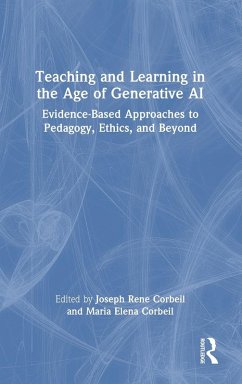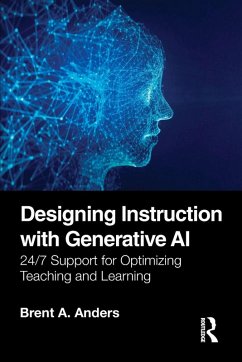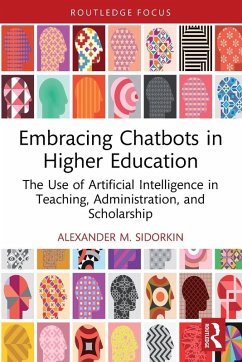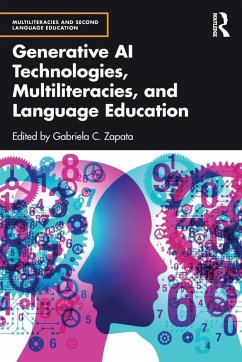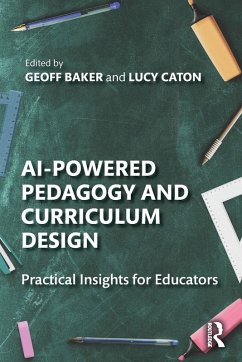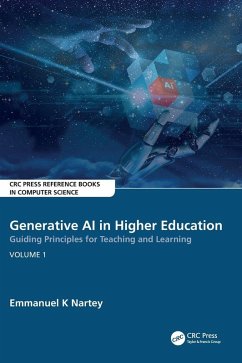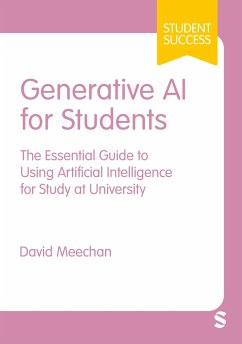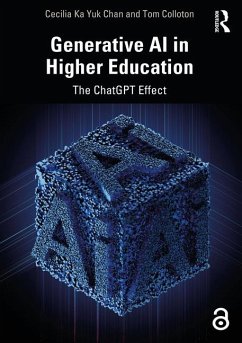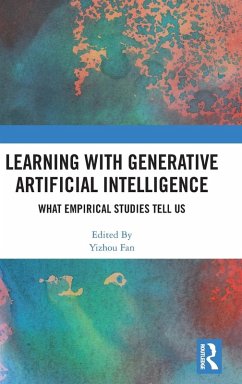
Teaching and Learning in the Age of Generative AI
Evidence-Based Approaches to Pedagogy, Ethics, and Beyond
Herausgegeben: Corbeil, Joseph Rene; Corbeil, Maria Elena
Versandkostenfrei!
Versandfertig in 6-10 Tagen
41,99 €
inkl. MwSt.
Weitere Ausgaben:

PAYBACK Punkte
21 °P sammeln!
Winner of the 2025 Systems Thinking & Change Division Outstanding Book Award from the Association for Educational Communications and Technology!Teaching and Learning in the Age of Generative AI explores how educators can effectively harness the potential of artificial intelligence technologies while skillfully navigating its pedagogical, technical, ethical, institutional, and societal implications. The increasing accessibility of AI technologies among K-12 and higher education students has raised extensive concerns around academic integrity, though a deeper lineage of research and development ...
Winner of the 2025 Systems Thinking & Change Division Outstanding Book Award from the Association for Educational Communications and Technology!
Teaching and Learning in the Age of Generative AI explores how educators can effectively harness the potential of artificial intelligence technologies while skillfully navigating its pedagogical, technical, ethical, institutional, and societal implications. The increasing accessibility of AI technologies among K-12 and higher education students has raised extensive concerns around academic integrity, though a deeper lineage of research and development suggests that these tools may be used to supplement instruction, prioritize critical thinking, and promote digital literacy. Bookended by in-depth analyses of the historical and future trajectories of artificial intelligence in education, this comprehensive resource provides evidence-based strategies for classroom implementation and helpful summaries of common benefits and risks.Teaching assistance, personalized learning, redefined assessments, anti-bias measures, and safeguards against misconduct and privacy infringement are among the wealth of topics addressed in these chapters. This book is an ideal text for undergraduate and graduate students of teacher education and curriculum and instruction as well as for higher education teaching faculty, school technology coordinators, and talent development personnel in training and in service.
Teaching and Learning in the Age of Generative AI explores how educators can effectively harness the potential of artificial intelligence technologies while skillfully navigating its pedagogical, technical, ethical, institutional, and societal implications. The increasing accessibility of AI technologies among K-12 and higher education students has raised extensive concerns around academic integrity, though a deeper lineage of research and development suggests that these tools may be used to supplement instruction, prioritize critical thinking, and promote digital literacy. Bookended by in-depth analyses of the historical and future trajectories of artificial intelligence in education, this comprehensive resource provides evidence-based strategies for classroom implementation and helpful summaries of common benefits and risks.Teaching assistance, personalized learning, redefined assessments, anti-bias measures, and safeguards against misconduct and privacy infringement are among the wealth of topics addressed in these chapters. This book is an ideal text for undergraduate and graduate students of teacher education and curriculum and instruction as well as for higher education teaching faculty, school technology coordinators, and talent development personnel in training and in service.





